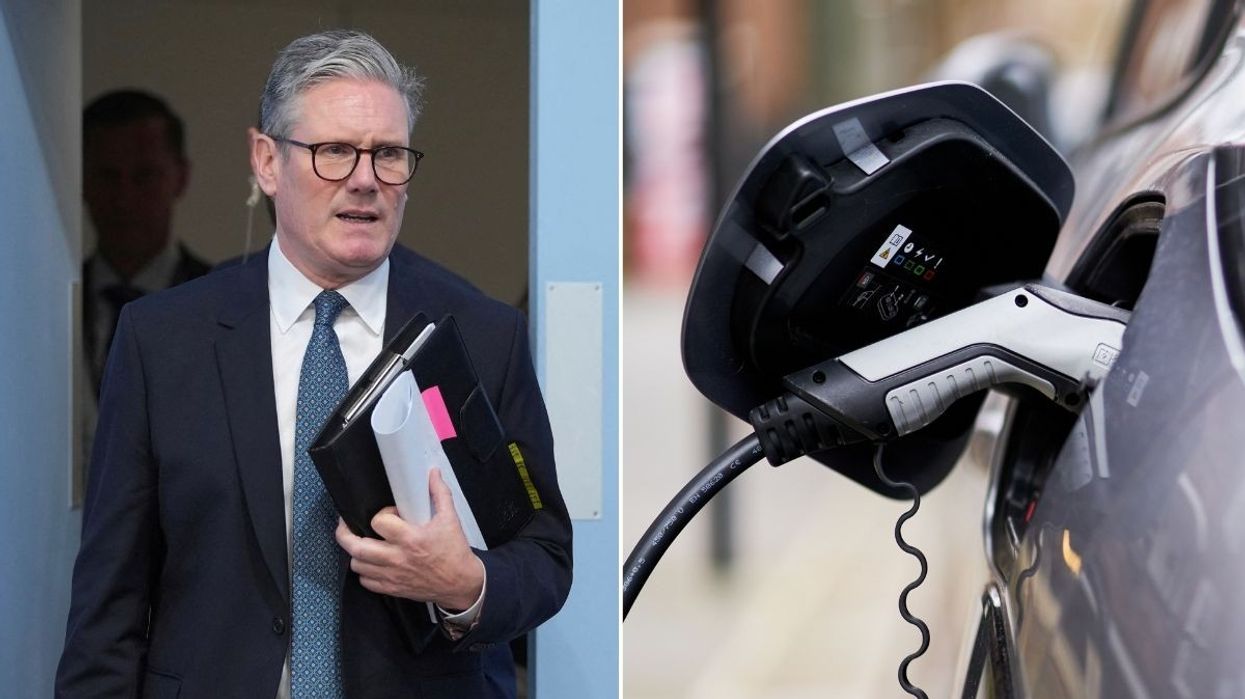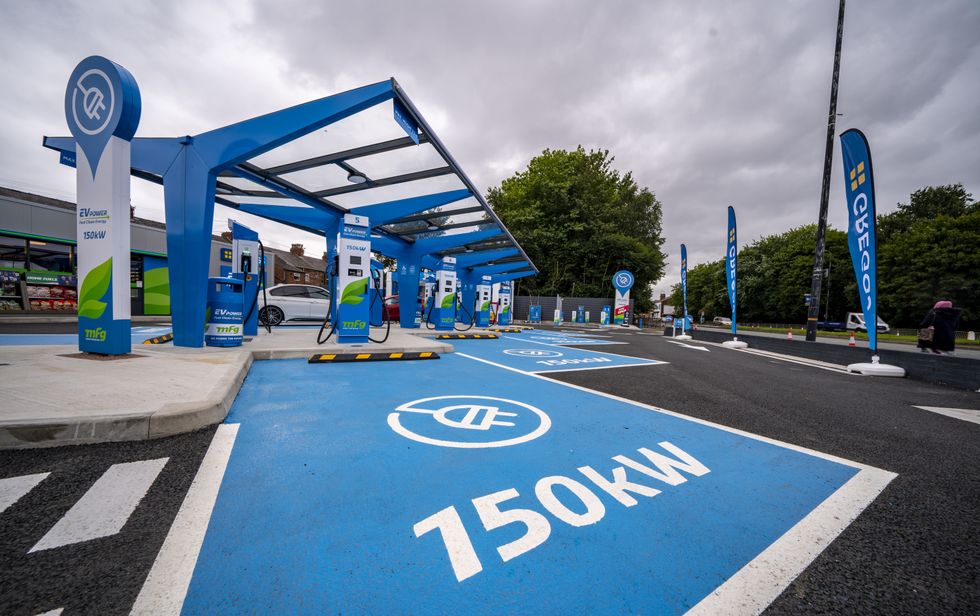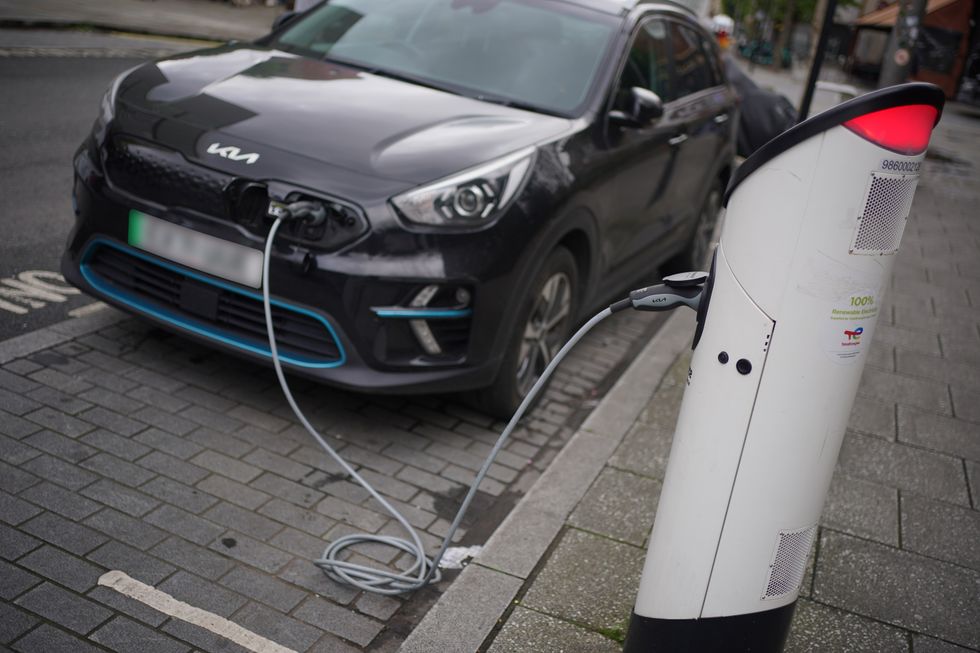'What Labour should do to help us all become electric vehicle drivers' - analysis by James Court

Keir Starmer's electric vehicle plans have been put under scrutiny by experts
|REUTERS/PA
James Court, CEO of EVA England, the trade body representing current and future EV drivers, spoke to GB News about what the new Labour Government can do to boost the uptake of electric vehicles across Britain
Don't Miss
Most Read
In last week’s Climate Change Committee report, the official ‘scorecard’ for the Government’s performance on meeting its net zero goals, the new Labour Government was warned that more policy input is urgently needed in the EV space to encourage faster uptake.
It has found that the UK lags behind its European neighbours like France, the Netherlands and Ireland which all saw encouraging growth last year.
Electric cars have come a long way since Labour were last in power. In 2010, there were just over 1,500 Electric cars on UK roads, compared to over one million today. Last month, nearly one in five new cars sold in the UK were EVs. And matching this quantity is the quality: surveys repeatedly point to EV drivers being overwhelmingly satisfied with the ownership experience.
Over nine in 10, for instance, stated in an EVA England survey last year that they would not move back to petrol or diesel. Part of this has been thanks to important strides in charging, for most, the days of charger anxiety are long gone as thousands upon thousands of chargers have been installed across the country.
Do you have a story you'd like to share? Get in touch by emailing motoring@gbnews.uk

Labour pledged to push ahead with the rapid rollout of electric vehicle chargers
|PA
Fair, equal, and affordable access to electric cars and charging, should be at the core of the new Government’s transport and environment mission.
There is a huge opportunity to open up access to electric cars to all thereby cutting both carbon emissions and day-to-day running costs, especially where people can charge at home.
Alongside this, there is billions of pounds worth of investment in charging infrastructure, in manufacturing and in battery development and production that can be unleashed by sending a clear message that electric cars are the future and that the new Government is committed to slashing emissions from transport.
Truly making electric cars mainstream is both a challenge and an opportunity for Labour.
The good news is that there are policy options that come at little or no cost, as well as others that offer excellent value for money for targeted support.
During the campaign, Labour rightly committed to getting even more chargers into the ground, alongside commitments to supporting national battery production and spurring homegrown electric car manufacturing.
There have been some detailed policy proposals too, such as standardising information on the condition of second-hand batteries – an interesting counter to the misinformation on battery durability and so-called ‘range anxiety’, as we find batteries are now comfortably outlasting the lifespan of the cars themselves.
Perhaps the biggest issue for the growth of electric cars is that of infrastructure. The current situation is broadly good, but as more people make the switch it will need to get better, both in reality and in perception.
The previous Government earmarked funding for both local infrastructure, as well as rapid charging on motorways. This has given a good base to build from, and there is now a strong and established charging industry straining at the leash to deploy.
We need to see a transformation in planning laws and grid connections to fully realise the growth opportunity charging presents. And the early signs in Government are positive. The Chancellor’s announcement on speeding up planning is a good first step.
The previous Government played a key role in spurring demand thanks to a range of subsidy schemes. But blanket cash handouts to new electric car drivers aren’t right now that the industry has come so far. Prices of electric cars compared to petrol equivalents are for many just too high though.
Clever schemes that bring down those costs with minimum Government support and focus on households currently priced out of electric cars should be looked at seriously. Without an intervention to boost demand, we risk undoing the momentum in uptake that has been carefully nurtured over the last decade.
LATEST DEVELOPMENTS:
- Petrol and diesel car ban needs to return to 2030 'as a matter of urgency' with calls for 'rapid progress'
- Drivers demand 'decisive action' to make electric vehicles 'a realistic option' amid slumping sales
- UK to have over 300,000 electric car chargers by 2030 but drivers insist 'there is still work to be done'

There are more than one million electric vehicles on British roads
|PA
We only have to look across the Channel for a good template. The highly successful and oversubscribed social leasing scheme in France is paving the way to making electric cars available to all.
Those previously excluded from electric cars are reaping the benefits of lower running costs and no emissions at the exhaust which is very attractive to people in towns and cities that need to drive for work. As more areas look to move to clean-air zones, these policies could be specifically targeted to help people switch.
All this points to a need for a proactive future policy environment on electric cars. Turbo-charging growth in public charging infrastructure, opening access to electric cars for all, and keeping the cost of charging and ownership down will be the key items in the Government’s in-tray.
Thankfully for Labour, the groundwork has been laid towards a bright future for sustainable travel in the UK. This new Government mandate, coupled with a nationwide mood for “change”, should be harnessed for electric cars to deliver their full potential for all UK drivers.
James Court, CEO of EVA England, the trade body representing current and future EV drivers










